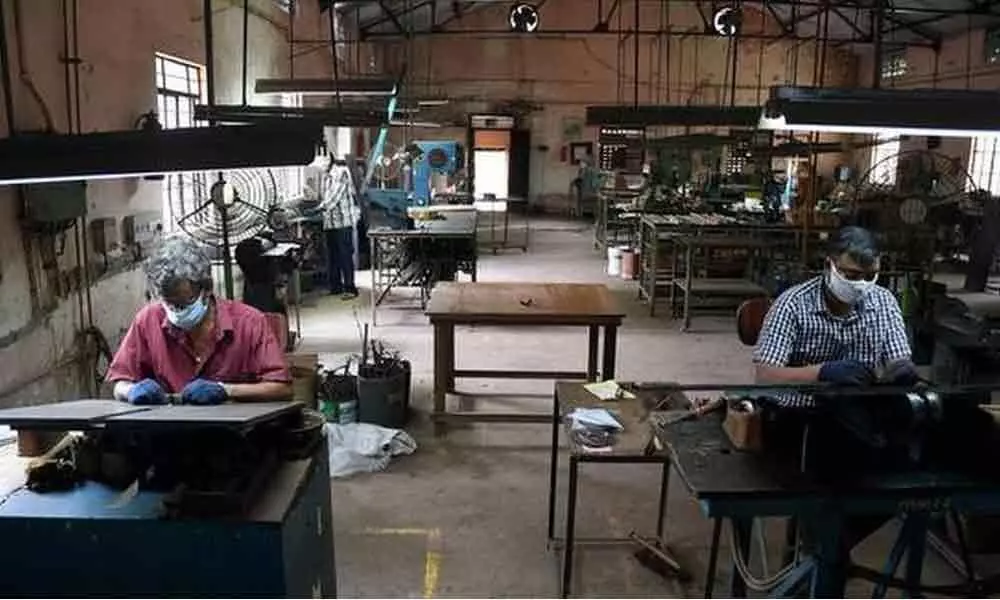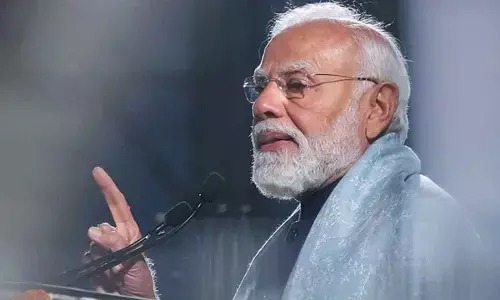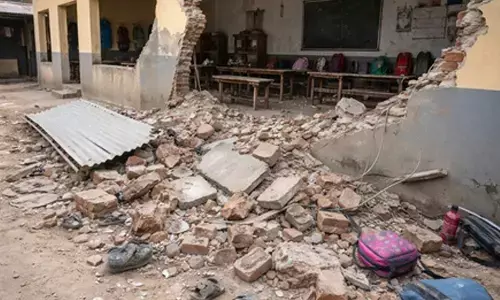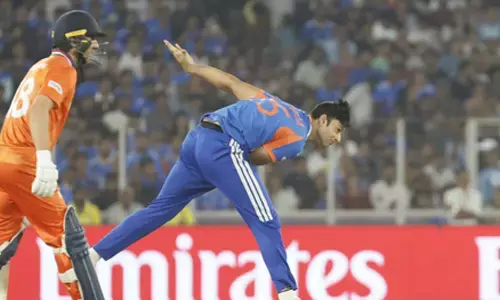GDP contraction poses existential threat to MSMEs
 GDP contraction poses existential threat to MSMEs
GDP contraction poses existential threat to MSMEsA Crisil report says policy interventions by RBI and Centre offer little hope
Mumbai: A 5 per cent contraction in gross domestic product (GDP) during 2020-21 may lead to a 15 per cent fall in corporate India's revenues and poses an 'existential threat' for small businesses, a report said on Monday.
However, policy interventions by the Reserve Bank of India (RBI) and the finance ministry offer little hope because they cannot revive demand, which is crucial for the small businesses, the report said.
The micro, small and medium enterprise (MSME) sector will have to face a sharper decline in revenues of up to 21 per cent, while operating profit margins will narrow to 4-5 per cent, said the research wing of domestic ratings agency Crisil.
The agency expects a 5 per cent contraction in the economy because of the impact of the coronavirus pandemic, which has led to nearly three months of lockdown across the country with little steps at opening up lately.
The government and the RBI have already announced actions like collateral-free loans of up to Rs 3 lakh crore to the segment since the onset of the crisis.
"MSMEs face existential crisis, revenue to fall a fifth...a sharp decline at the operating level will also impact creditworthiness, aggravating the liquidity stretch these units have been grappling with, particularly on the working capital front," the agency said.
It said there are gains to be made out of the lower commodity prices but the weak demand in the economy will ensure that the small business segment is unable to capitalise on those, it said.
The average interest service coverage ratio could slide to 1-1.5 times from 2.4 times seen between the financial years 2016-17 and 2019-20, even after factoring in the benefit of moratorium on interest payments announced by the RBI, it said adding that without the moratorium, the ratio would have gone below one.
The hardest hit will be the micro enterprise segment, which accounts for 32 per cent of the overall MSME debt, and are facing material stress in terms of revenue growth, operating profit margins and working capital stretch, it said.
Drawing from precedents, it said previous downturns have shown that micro and small enterprises are unable to manage transient working capital challenges as easily as their large and medium peers.
The policy interventions from the RBI and the finance ministry will help them tide over tapered cash flows, it said adding that the biggest concern is demand that needs to be revived for the betterment of this crucial sector.
However, the report was not so optimistic on the policy interventions'' ability to drive demand in the economy. "The current facilitations may not have the heft to crank up demand in the near term because fiscal stimulus is limited and only to vulnerable households," its Chief Operating Officer Amish Mehta said.
"It is critical that the demand curve is yanked steeply northwards, especially in discretionary products and services," he added.
He said a three-pronged strategy is essential now, which should include improvement in the sentiment around job security for formal and informal workers to boost consumption, hastening implementation of the Aatmanirbhar scheme to ensure flow of liquidity to MSMEs continues, and lenders going beyond traditional credit processes because they have to play a seminal role in recovery.








